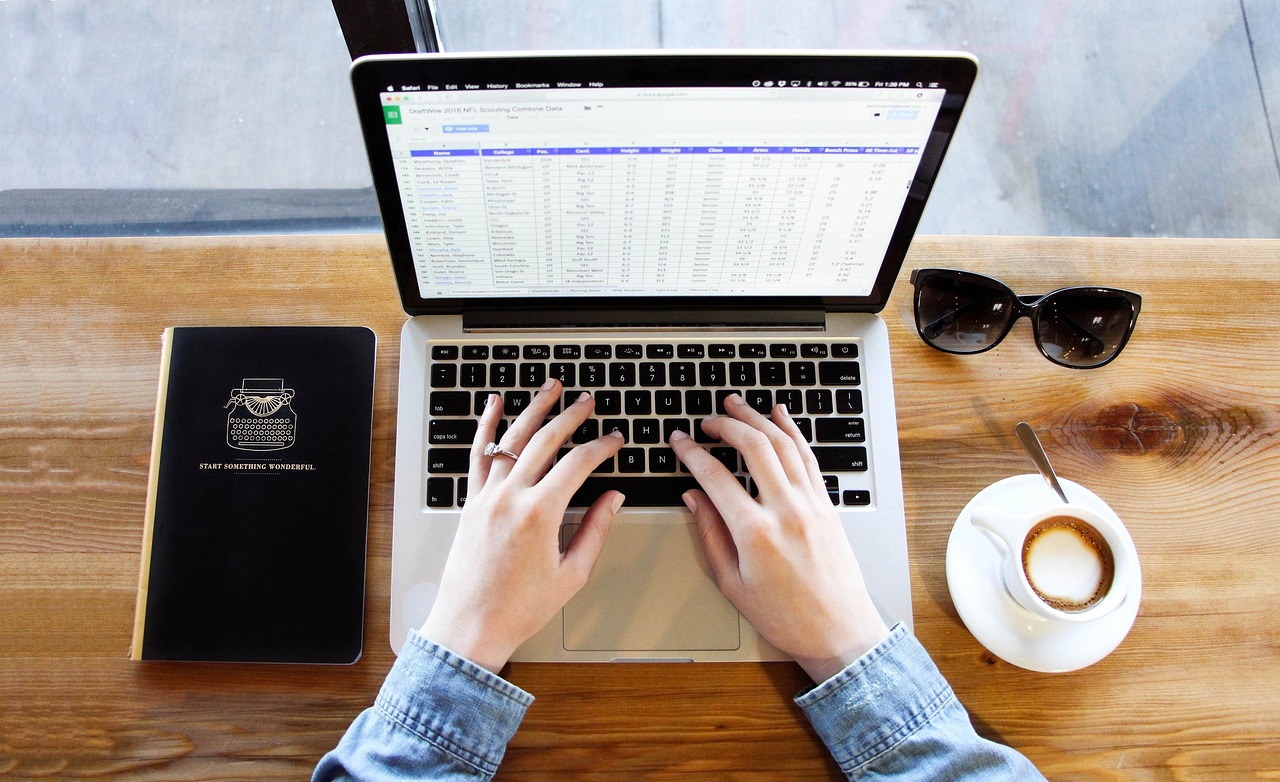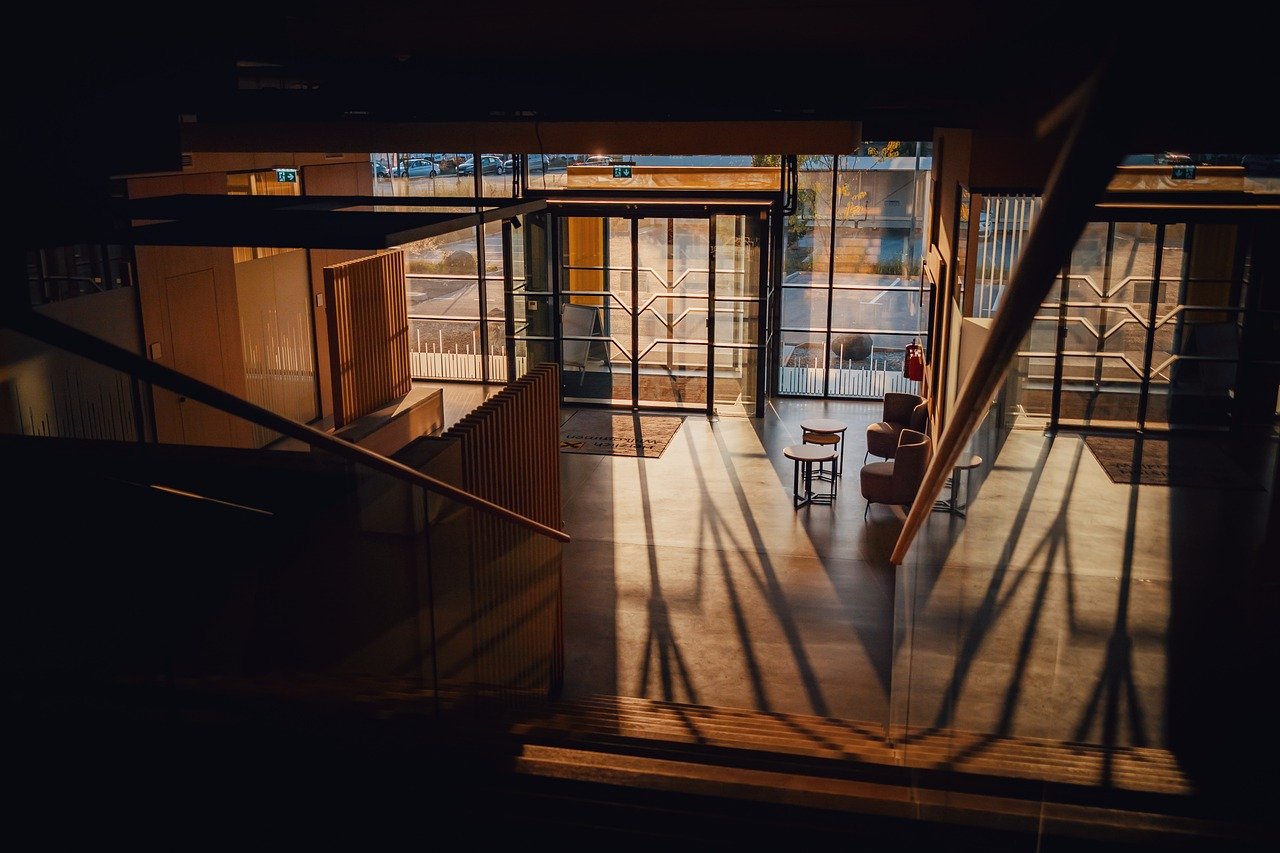The Popularity of Workation - Combining Work and Leisure
Workation, a fusion of work and vacation, has been gaining immense popularity in recent years as individuals seek to break away from the traditional office setup and embrace a more flexible way of working. This innovative concept allows people to combine their professional responsibilities with leisure activities, offering a unique blend of productivity and relaxation in diverse locations around the world.

Benefits of Workation
Exploring the rising trend of workations, where individuals blend work responsibilities with leisure activities in various locations. This article delves into the benefits, challenges, and tips for a successful workation experience.
Workation offers a plethora of advantages that cater to the modern professional seeking a balanced lifestyle. One of the key benefits is the increased productivity that comes with a change in environment. By working in a new setting, individuals often find a renewed focus and motivation, leading to enhanced efficiency and output. Moreover, the integration of leisure activities into the work routine promotes a healthier work-life balance, reducing burnout and improving overall well-being.
Additionally, the creative benefits of workation cannot be overlooked. Being exposed to different surroundings and cultures can spark inspiration and innovation, leading to fresh ideas and solutions. Furthermore, the flexibility of remote work allows individuals to explore new destinations while continuing with their professional responsibilities, combining work and travel seamlessly.

Challenges of Workation
Exploring the rising trend of workations, where individuals blend work responsibilities with leisure activities in various locations. This article delves into the benefits, challenges, and tips for a successful workation experience.
Highlighting the advantages of workations, such as increased productivity, work-life balance, enhanced creativity, and the opportunity to explore new destinations while working remotely.
Embarking on a workation journey brings its own set of challenges that individuals need to navigate. One of the primary hurdles is managing time zones effectively. With work often spanning across different regions, synchronizing meetings and deadlines can become a logistical puzzle. Additionally, striking a balance between work and leisure activities poses a significant challenge. It can be tempting to prioritize exploration over work responsibilities or vice versa, leading to potential conflicts in time management. Moreover, internet connectivity issues can disrupt workflow, especially in remote locations where reliable Wi-Fi may not be readily available. Lastly, maintaining focus in a new environment can be demanding, as distractions and unfamiliar surroundings can impact concentration and productivity.
Providing practical advice on how to make the most of a workation, including setting boundaries, creating a productive workspace, planning activities strategically, staying organized, and prioritizing self-care.
Exploring some of the top destinations worldwide that cater to workation needs, offering amenities like coworking spaces, reliable Wi-Fi, recreational activities, and a conducive environment for remote work.
Drawing a comparison between workations and traditional vacations, examining the differences in purpose, structure, benefits, and challenges to help individuals choose the best option based on their preferences and goals.
Investigating the psychological effects of workations on mental well-being, including stress reduction, increased job satisfaction, improved work performance, and the importance of balancing work and relaxation.
Predicting the future trajectory of workations, considering factors like evolving work culture, technological advancements, changing travel preferences, and the potential integration of workation concepts into mainstream work practices.

Tips for a Successful Workation
Embarking on a workation can be an exciting blend of productivity and relaxation, but ensuring a successful experience requires careful planning and execution. Setting boundaries is crucial to maintain a healthy work-life balance during your workation. By clearly defining your work hours and leisure time, you can prevent burnout and ensure that both aspects of your trip are fulfilling.
Creating a productive workspace is essential for optimizing your work efficiency while away from your usual office environment. Whether it's setting up a designated desk in your accommodation or finding a cozy corner in a local café, having a comfortable and functional workspace can significantly impact your productivity.
Planning activities strategically can help you make the most of your workation. Balancing work commitments with leisure pursuits requires thoughtful scheduling. Consider allocating specific time slots for work tasks and leisure activities to ensure a harmonious blend of productivity and relaxation.
Staying organized is key to managing your workload effectively during a workation. Utilize tools such as digital calendars, task management apps, and to-do lists to stay on top of your responsibilities. By maintaining a structured approach to your work and leisure activities, you can maximize your time and productivity.
Moreover, prioritizing self-care is essential for your overall well-being during a workation. Remember to take breaks, engage in activities that rejuvenate you, and practice self-care rituals to recharge both mentally and physically. A well-rounded approach to self-care can enhance your productivity and enjoyment of the workation experience.

Popular Workation Destinations
When it comes to workation destinations, there are several places around the world that cater to the needs of remote workers seeking a balance between work and leisure. One popular destination is Bali, Indonesia, known for its serene beaches, vibrant culture, and abundance of coworking spaces offering reliable Wi-Fi. Bali provides a perfect blend of work-friendly environments and recreational activities, making it an ideal choice for those looking to work remotely while enjoying a tropical paradise.
Another sought-after workation destination is Lisbon, Portugal, a city that combines historic charm with modern amenities. With its thriving startup scene, numerous cafes with excellent internet connectivity, and stunning views of the Atlantic Ocean, Lisbon appeals to digital nomads and remote workers alike. The city's mild climate and affordable cost of living make it an attractive option for an extended workation experience.
For those craving a mix of bustling city life and natural beauty, Medellin, Colombia, emerges as a top choice. This vibrant city nestled in the Andes Mountains boasts a growing community of remote workers, affordable accommodation options, and a range of outdoor activities to unwind after work hours. Medellin's pleasant climate and welcoming locals create a conducive environment for both work and relaxation.
Heading to the Mediterranean, the island of Malta stands out as a workation hotspot with its rich history, crystal-clear waters, and modern coworking spaces. Whether you prefer working from a cozy cafe overlooking the sea or exploring ancient ruins during your downtime, Malta offers a unique blend of work-friendly infrastructure and leisure opportunities. The island's laid-back atmosphere and diverse cultural influences make it an inspiring location for a productive workation.

Workation vs. Traditional Vacation
When comparing workations to traditional vacations, it's essential to understand the distinct characteristics and purposes of each. Workations blend work responsibilities with leisure activities, allowing individuals to work remotely while exploring new destinations. On the other hand, traditional vacations are primarily focused on relaxation and leisure without the inclusion of work-related tasks.
One significant difference between workations and traditional vacations is the structure of the experience. Workations require individuals to balance work commitments with leisure activities, often incorporating designated work hours into their daily schedule. In contrast, traditional vacations are centered around relaxation and enjoyment, with no work-related obligations or responsibilities.
While workations offer the flexibility of working from anywhere, they also present challenges such as managing time zones, maintaining work-life balance, and ensuring consistent internet connectivity. Traditional vacations, on the other hand, provide a break from work-related stress and allow individuals to unwind and recharge without the pressure of work tasks.
When it comes to benefits, workations can enhance productivity by providing a change of scenery and fostering creativity in a new environment. They also offer the opportunity to explore different cultures and locations while maintaining work commitments. On the contrary, traditional vacations focus on relaxation and rejuvenation, offering a break from the daily routine and allowing individuals to unwind and destress.
In conclusion, the choice between a workation and a traditional vacation ultimately depends on individual preferences and goals. Workations are ideal for those seeking a blend of work and leisure, while traditional vacations are suitable for individuals looking for pure relaxation and downtime. By understanding the differences between these two types of experiences, individuals can make an informed decision based on their unique needs and priorities.

Impact of Workation on Mental Health
Workations, the fusion of work and vacation, have a profound impact on mental health. By breaking away from the traditional office setting and immersing oneself in a new environment that offers a mix of work and leisure opportunities, individuals can experience a positive shift in their mental well-being. The change of scenery and the ability to work from inspiring locations can lead to reduced stress levels and increased job satisfaction. The flexibility and freedom that workations provide can contribute to improved work performance and a sense of rejuvenation.
Moreover, the balance between work and relaxation during a workation can play a crucial role in maintaining mental health. Taking breaks to explore the surroundings, engage in recreational activities, or simply unwind in a different setting can help individuals recharge both mentally and emotionally. This balance is essential in preventing burnout and fostering a healthy mindset towards work. Workations offer a unique opportunity to prioritize self-care and mental well-being while continuing to meet professional responsibilities.

Future Trends in Workation
As workations continue to gain popularity, it is intriguing to ponder the future trends that may shape this unique blend of work and leisure. The concept of workation is expected to evolve in tandem with the changing landscape of work culture and technological advancements. With companies increasingly embracing remote work options and flexible schedules, the workation trend is likely to become more mainstream.
One of the future trends in workation could involve the integration of virtual reality (VR) technology to enhance the remote working experience. Imagine being able to work from a tropical beach or a bustling cityscape through immersive VR simulations, providing a new level of flexibility and freedom for remote workers. This innovation could revolutionize the workation concept, offering a more engaging and interactive environment for professionals.
Furthermore, the rise of digital nomadism is expected to influence the future of workations significantly. As more individuals embrace a location-independent lifestyle, workation destinations may cater specifically to this demographic by providing tailored services and amenities for remote workers. This shift could lead to the emergence of new workation hotspots around the globe, catering to the needs of digital nomads seeking a balance between work and exploration.
Additionally, the concept of work-life integration is likely to shape the future trends in workation. Rather than viewing work and leisure as separate entities, individuals may seek to blend these aspects seamlessly, creating a holistic approach to their professional and personal lives. Workations could serve as a catalyst for this integration, encouraging individuals to prioritize their well-being, creativity, and productivity in a harmonious manner.
In conclusion, the future of workation holds exciting possibilities for remote workers and digital nomads alike. With advancements in technology, changing work dynamics, and shifting preferences towards flexible lifestyles, workations are poised to become a prevalent choice for individuals seeking a unique and fulfilling work-life balance.
Frequently Asked Questions
- What is a workation?
A workation is a blend of work and vacation, where individuals work remotely from a different location while also enjoying leisure activities. It allows for flexibility in work schedules and the opportunity to explore new destinations.
- How can a workation benefit me?
Workations offer various benefits such as increased productivity, improved work-life balance, enhanced creativity, and the chance to experience different cultures and environments while working remotely.
- What are the challenges of a workation?
Challenges of workations may include managing time zones, balancing work responsibilities with leisure activities, dealing with internet connectivity issues, and staying focused in a new and potentially distracting environment.
- How can I ensure a successful workation?
To have a successful workation, it is essential to set boundaries between work and leisure, create a productive workspace, plan activities strategically, stay organized, and prioritize self-care to maintain overall well-being.
- What are some popular workation destinations?
Popular workation destinations worldwide include places that offer coworking spaces, reliable Wi-Fi, recreational activities, and a conducive environment for remote work, such as Bali, Lisbon, Chiang Mai, and Tulum.
- How does a workation differ from a traditional vacation?
The main difference between a workation and a traditional vacation lies in the combination of work responsibilities and leisure activities during a workation, whereas a traditional vacation is solely focused on relaxation and leisure without work commitments.



















